- Home
- Sats results 2018: LIVE
Sats results 2018: LIVE
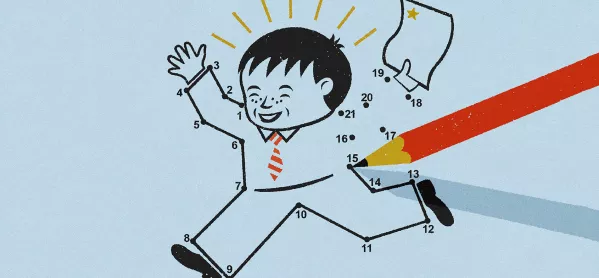
The reactions of today's Sats results continues over on Twitter:
On the Tes community forums, teachers are discussing today's results.
Bevdex said: "Thank god ours are much better than last year - that increase in reading thresholds has scuppered a couple of ours although looking through the papers, Q40 seems to have been poorly marked so we'll be challenging a few!"
Abacus1982 said: "I am in an area where there are five good schools all within walking distance. Our results have dropped and it could put prospective parents off. It's also my first year as HT and the results are, on first glance, really rubbish! Reasons behind them (had lots of children join us over past two years, behaviour issues) but when you look at the raw percentages the school has got worse."
And kfroggatt91 asked: "Anyone think this is worth challenging? We are contemplating challenging the mark given for Q33 on the arithmetic paper ( 1 1/2 x 40). According to the mark scheme, only the answer of 60 was accepted. Lots of our children put 120/2 which is obviously equivalent. In a near identical question last year, this type of answer (equivalents) was accepted. The instructions appear to be the same, and we can't seem to find anything that would explain why this was accepted last year but not this year. For a couple of the boundaries this extra mark would get them over the line."
NCA tools now has the correct data, according to this teacher.
Dr Mary Bousted, joint general secretary of the National Education Union, says: “Today’s announcement means that, despite the hard work of teachers and pupils, over a third of 11-year-olds will arrive in secondary schools in September labelled as ‘below the expected standard’. This devastating outcome is the result of policy-makers’ delusion that to measure the performance of our school system it is necessary to test each individual pupil, and to prepare pupils relentlessly to be tested. The stress this causes for children and their schools is building up.
“In a survey of their experience of primary assessment in 2018, published yesterday, over 90 per cent of NEU members reported that Sats adversely affected pupils’ well-being, with 86 per cent saying preparation for Sats squeeze out other parts of the curriculum.
“The real story of Sats isn’t the headline figures, it’s the damage that our test-driven system is inflicting on primary schools day in, day out throughout the school year. A narrow curriculum, stressed children, over-worked teachers: these are the signs of an assessment system that needs root and branch change.”
The average scaled score in reading has increased to 105, compared to 104 in 2017. The average scaled score remains the same in maths and GPS, at 104 and 106.

Madeleine Holt of More Than A Score and co-founder of parent group Rescue Our Schools, says: “We should not have a system in which ten and eleven-year-olds believe that tests they sit in Year 6 will determine their future job prospects. And we should not have a system in which many primary school pupils are worried and anxious about sitting tests. It is no wonder we hear stories of children suffering as a result of this pressure with many parents reporting their children showing signs of both physical and mental stress in the months before the Sats take place.
"According to the Department for Education, Satss are intended mainly to measure the performance of schools, not individual pupils. It’s not turning out that way. Unfortunately, it is a sign of the pressure now put upon pupils, teachers and parents that children view their scores as a measure of their own individual ability and future success. This is particularly worrying given the limited focus of SATs. Year 6 pupils will now be looking forward to their summer holidays having spent at least two terms working on a narrow curriculum of English and Maths. At a time when their minds could have been stimulated and their knowledge expanded, their education has been sacrificed to a system which is in thrall to league tables.
“It is another demonstration of a system which is not fit for purpose and it is time for the DfE to take action to protect children’s well-being.”
Nick Gibb, school standards minister, said: “A good primary education lays the foundations for success at secondary school and beyond. That’s why we introduced a more rigorous, knowledge-rich primary school curriculum – with an emphasis on reading and fluency in arithmetic – to ensure every child is helped to reach their potential from the moment they start school.
“Today’s results and the rising standards we are seeing in our primary schools are the fruit of our reforms and a tribute to the hard work and dedication of teachers across the country. These reforms promise even more success in the years to come and will help to improve education for every child, no matter their background.”
Paul Whiteman, general secretary of school leaders’ union NAHT, says: “Test and exam data are only part of the picture when judging a school’s effectiveness or a pupil’s performance. As they approach the end of Primary, it’s important that all the skills and achievements of each child and their school’s contribution is fully recognised. Parents understand this and the government is beginning to understand it too.
“No single piece of data should ever be used to make a judgement about a school or a child. We recommend that performance data should be looked at over a three year period and we have assurances from the secretary of state that data will be used more fairly from now on.”
The summary Sats results given to each primary school have been temporarily taken down from a government website after a reported error.
Schools were plunged into confusion this morning when they were given summary Sats results which did not match individual pupils results.
The expected standard for all three exams has risen again this year.
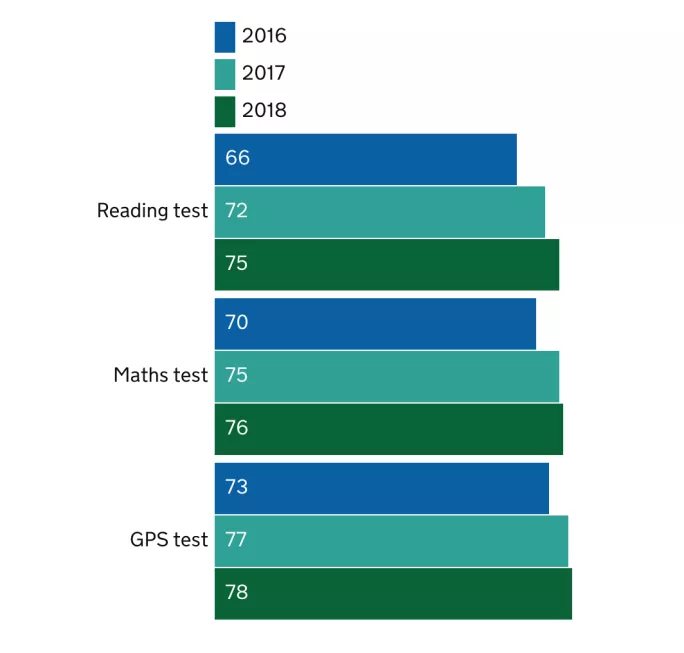
Julie McCulloch, director of policy at the Association of School and College Leaders, said: "Congratulations to schools, teachers and pupils on the work which has gone into the continued improvement in results this year following the introduction of harder tests in 2016 and a new curriculum. They have done a remarkable job in achieving such impressive results.
“We are, however, concerned about reports of children crying and having nightmares about SATs. Schools do their best to protect their pupils from stress and anxiety, but action is clearly needed to reduce the pressure of the current system.
“The problem is not the tests themselves but the fact that they are used as the main way of judging primary schools and the stakes are extremely high. In reality, four days of tests out of seven years of schooling can never provide anything more than a snapshot.
“ASCL is urging the Department for Education and Ofsted to attach less weight to a single set of results and to treat these tests as just one element of the story of a school. We have put forward a series of proposals to lower the stakes and make the system fairer on schools and better for children.”
BREAKING:
- 64 per cent of pupils reached the expected standard in reading, writing and maths.
- 75 per cent of pupils reached the expected standard in reading.
- 76 per cent reached the expected standard in maths.
- 78 per cent reached the expected standard in SPaG
- 78 per cent reached the expected standard in writing
Headteachers have been questioning their school's Sats results - after the headline figures appeared to exclude some children from the calculation.
Initial reactions from headteachers, who were able to access their own results from 7.30am today, were that the summary figures did not seem to match the individual pupil data.
It appears that children who were working below the level of the test - who are given a label of B - were not included in some calculations.
As the scaled scores are announced, teachers and leaders offer their words of support to Year 6 teachers and headteachers awaiting their results this morning.
The joys of modern technology...
The pass marks for the Sats has risen this year, the DfE has revealed.
Pupils needed at least 28 marks out of 50 to reach the expected standard in reading. Last year, pupils needed a score of 26.
In maths, pupils needed 61 out of 110 to reach the expected standard. Last year, pupils needed 57.
In Spag, pupils needed 38 out of 70 to reach the expected standard. Last year, pupils needed 36.
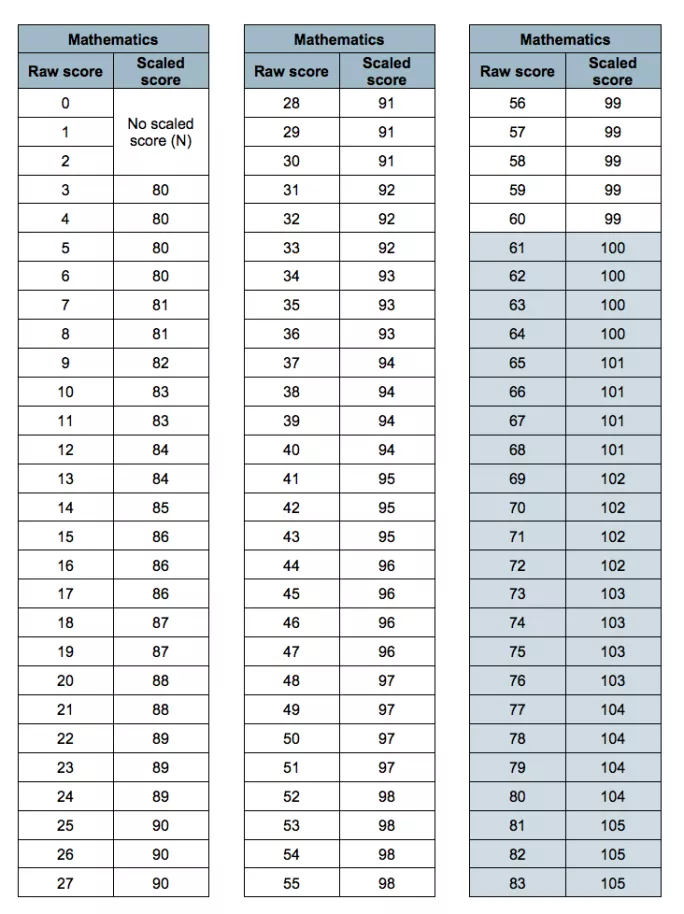
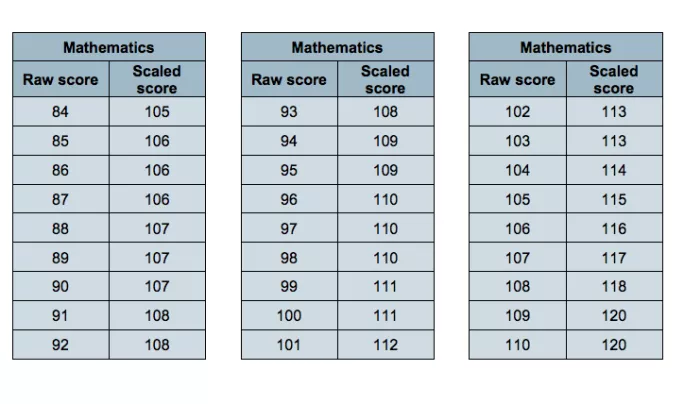
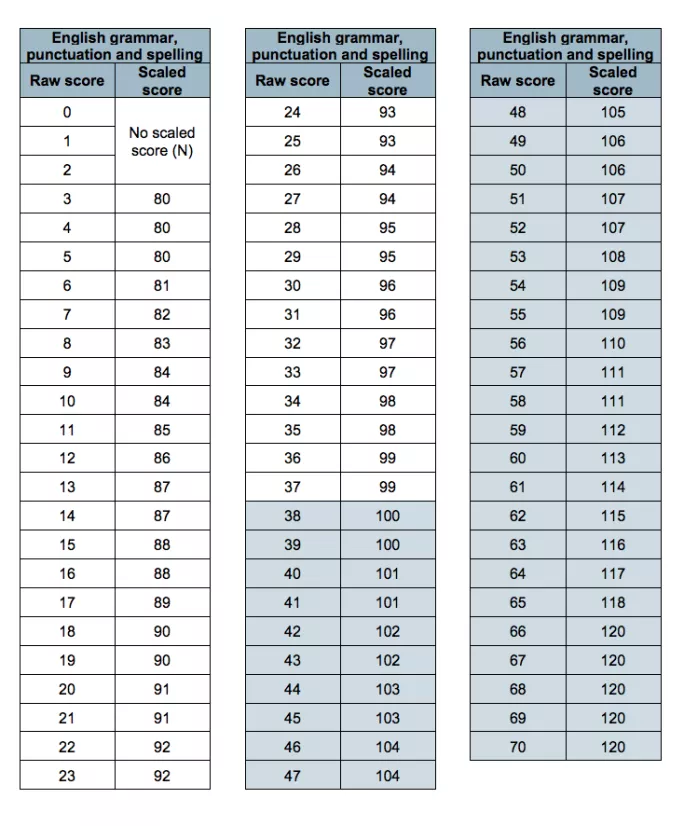
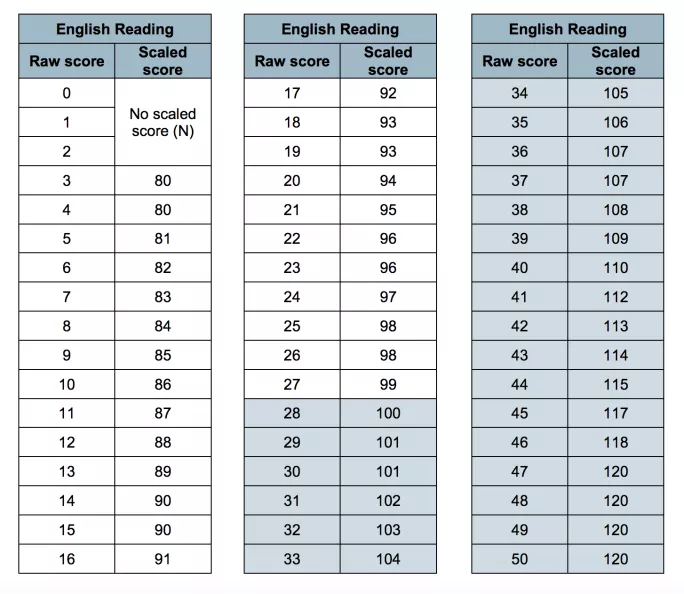
What do you think about the changed release time? Is it better that the results are released at 7.30am rather than midnight? Join in the discussion on the Tes community:
Otters25 wrote: "Slight sick feeling in the stomach, finding it hard to focus and 7:30am tomorrow seems an age away! Add the heat into the mix and the thought of a good night’s sleep seems remote. Any thoughts on possible thresholds? Mine for what they are worth are: reading same (following last year’s hike up), maths maybe up a few marks for expected and definitely for greater depth. Not that we will know GD tomorrow. Good luck everyone and keep counting the get ups left until the summer!"
Sunshineneeded wrote: "I thought I was pleased that the time has changed from midnight to 7.30 am, but as I can't sleep on these hot nights, it might as well have been midnight! We'll all know tomorrow morning - good luck everyone!"
Tedhat wrote: "I sooo wish it was still a midnight job. I won't sleep well anyway but at least at midnight, I could do a couple of hours' analysis and grab at least 4 hours' kip. Tonight, I doubt I'll get much at all. Feel sick thinking about them. I also can't remember what's what re GD other than 110+..... how can I have forgotten this!?!?
Sats results are due to be released to schools at 7.30am tomorrow morning – later than last year's midnight publication time, and teachers are feeling the pressure...
Children are having nightmares about the Sats tests, says the National Education Union.
They carried out a survey of 1,200 primary teachers in June and July and found that nine out of 10 primary schoolteachers felt Sats were detrimental to children’s wellbeing.
A number of schools were able to access their Sats results ahead of them being officially published because of a blunder on a government website.
The Department for Education confirmed that during testing of the Standards and Testing Agency’s system “a small number" school results from key stage 2 Sats were accessed.
We must remember context when faced with the cold black digits on the screen, says headteacher Michael Tidd. Some fall on the right side of the all-important thresholds, while others sadly fall short. It’s inevitable that we’ll miss some of the goals we set for ourselves.
More than 600,000 10- and 11-year-olds took their Sats tests last month and now their schools are about to learn how they did. In this live blog, we will be keeping you up-to-date with everything you need to know about Sats results day 2018.
Keep reading for just £1 per month
You've reached your limit of free articles this month. Subscribe for £1 per month for three months and get:
- Unlimited access to all Tes magazine content
- Exclusive subscriber-only stories
- Award-winning email newsletters



